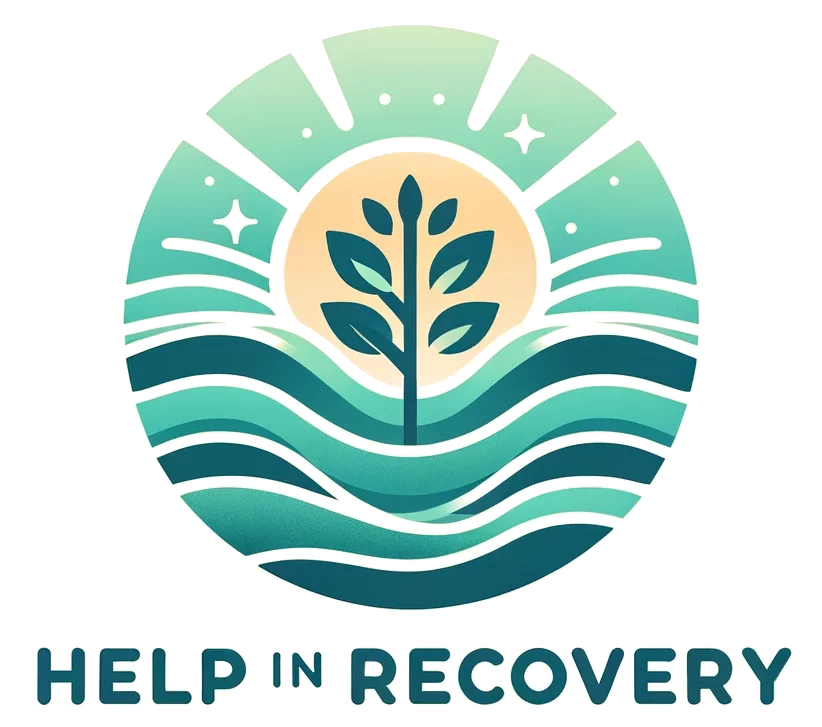Mastering Relapse Prevention: A Comprehensive Guide to Sustained Recovery
Introduction to Relapse Prevention
Relapse Prevention: A Cornerstone of Addiction Recovery
Relapse prevention is a vital aspect of recovery from addiction, playing a pivotal role in maintaining long-term sobriety and mental health. This comprehensive guide explores the multifaceted nature of relapse prevention, highlighting its importance in the journey towards lasting recovery.
The Multidimensional Approach to Relapse Prevention
- Beyond Abstinence: Understanding the complexity of addiction beyond just abstaining from substance use.
- Emotional Intelligence: Recognising and managing emotional triggers to prevent relapse.
- Cognitive Awareness: Understanding psychological patterns that may lead to relapse.
- Environmental Factors: Acknowledging and adapting to external triggers in one’s surroundings.
Navigating the Recovery Path
- Challenges and Setbacks: Understanding that recovery is a journey with potential hurdles.
- Resilience Building: Learning and applying strategies to overcome challenges and prevent relapse.
- Continuous Growth: Emphasising the importance of personal development in recovery.
The Role of Support in Relapse Prevention
- Community and Networks: Leveraging the power of support groups, friends, and family in recovery.
- Professional Assistance: The critical role of therapists, counsellors, and healthcare providers in guiding and supporting recovery efforts.
Comprehensive Coverage in This Guide
- Critical Areas of Focus: Delving into the stages of relapse, identifying triggers, and effective prevention strategies.
- Empowering Individuals: Providing actionable tips and techniques for lifestyle changes and coping mechanisms.
- Towards Holistic Wellness: Fostering an approach beyond addiction to embrace overall well-being and a fulfilling life.
| Key Takeaways | Description |
|---|---|
| Stages of Relapse | Understanding the emotional, mental, and physical stages of relapse is crucial for early intervention. |
| Role of Triggers | Identifying and managing both internal and external triggers is a fundamental step in relapse prevention. |
| Relapse Prevention Plan | Creating a personalized plan with strategies for coping with triggers and high-risk situations. |
| Lifestyle Changes | Adopting healthy habits and routines, including physical activities, diet, and mindfulness practices. |
| Support Systems | Leveraging the power of support groups, family, friends, and professionals in the recovery journey. |
| Continuous Growth | Emphasizing the importance of ongoing learning, personal development, and adapting to changes in the recovery process. |
Understanding the Stages of Relapse
The Journey Through Relapse: Recognising the Warning Signs
The process of relapse in addiction recovery is not a singular event but a gradual progression through various stages. Understanding these stages is crucial for early intervention and effective relapse prevention.
Stage 1: Emotional Relapse
- Internal Warning Signs: Emotional relapse sets in with subtle signs before relapse becomes a conscious thought.
- Symptoms to Watch For: Anxiety, moodiness, irritability, and emotional withdrawal are common.
- Preventive Measures: Engaging in self-care activities, seeking emotional support, and practising stress management techniques.
Stage 2: Mental Relapse
- The Internal Battle: A tug-of-war between the desire to use and remain sober.
- Recognisable Indicators: Reminiscing about past substance use, glamorising past addiction, and considering contacting old acquaintances from using days.
- Strategies for Management: Cognitive behavioural techniques, mindfulness practices, and contacting support networks.
Stage 3: Physical Relapse
- The Final Threshold: The actual act of using substances again.
- Critical Intervention Points: Recognising the imminent risk of substance use and taking immediate Action.
- Emergency Measures: Contact a healthcare provider, seek support from recovery groups, and possibly consider inpatient treatment if necessary.
The Role of Triggers in Relapse Prevention
Navigating Through Triggers: A Fundamental Step in Relapse Prevention
In addiction recovery, identifying and managing triggers is essential for maintaining long-term sobriety. Triggers can be seen as the catalysts that provoke the thoughts or cravings leading to relapse. They vary significantly among individuals and can be both external and internal.
Understanding Different Types of Triggers
- External Triggers: These include specific locations, social situations, people, or objects closely associated with an individual’s past substance use.
- Internal Triggers: Emotional states like stress, anxiety, loneliness, or even positive feelings like excitement can act as triggers. Internal triggers often stem from unresolved psychological or emotional issues.
Developing Effective Strategies to Manage Triggers
- Awareness and Recognition: The first step is to recognise personal triggers. This requires mindfulness and self-reflection.
- Building Coping Mechanisms: Techniques such as meditation, deep breathing exercises, and engaging in hobbies can help manage triggers.
- Seeking Professional Help: Therapy sessions can effectively provide tailored strategies to handle specific triggers.
Avoidance vs. Confrontation
- Avoidance Strategy: Initially, avoiding situations or people that serve as triggers can be effective. However, this is only sometimes feasible in the long run.
- Confrontation Strategy: Learning how to confront and cope with triggers in a controlled environment, such as therapy, can lead to long-term success in relapse prevention.
Empowerment Through Knowledge
- Educational Resources: Understanding the science behind addiction and triggers can empower individuals to manage them more effectively.
- Workshops and Seminars: Participating in educational sessions focused on trigger management can provide additional insights and tools.
The Role of Support Systems in Managing Triggers
- Family and Friends: A supportive network that understands your triggers can provide a layer of defence against relapse.
- Support Groups: Connecting with others who have similar experiences can provide practical advice and emotional support.
In summary, effectively managing triggers is a dynamic and ongoing process in recovery. It involves a combination of self-awareness, proactive strategies, and support from others. This section aims to equip readers with a deeper understanding of triggers and practical ways to manage them, strengthening their resolve in their recovery journey.
Developing a Relapse Prevention Plan
Crafting a Blueprint for Sustained Recovery
A relapse prevention plan is a personalised strategy that individuals in recovery develop to maintain long-term sobriety. It’s a proactive approach that involves identifying potential risks and creating a detailed plan to address them. Learn more about relapse prevention strategies at AddictionGroup.org.
Essential Components of a Relapse Prevention Plan
- Personal Triggers Identification: Listing specific triggers that might lead to relapse.
- Coping Strategies: Outlining effective methods to manage these triggers.
- Support System: Detailing a network of individuals and groups that can provide help in challenging times.
Steps to Create an Effective Plan
- Self-Reflection and Assessment: Understanding personal addiction history and behaviours that lead to substance use.
- Goal Setting: Defining clear, achievable goals for recovery.
- Skill Development: Learning and practising skills like stress management, emotional regulation, and refusal strategies.
- Routine and Structure: Establish a daily routine supporting sobriety.
- Ongoing Review and Adaptation: Regularly updating the plan to reflect changes in lifestyle and recovery stage.
Incorporating Professional Guidance
- Therapy and Counseling: Working with professionals to develop and refine the plan.
- Regular Check-ins: Scheduling periodic reviews with a counsellor or therapist to assess progress and make necessary adjustments.
The Importance of Flexibility
- Adapting to Change: Being open to modifying the plan as life circumstances and recovery needs evolve.
- Learning from Experiences: Using setbacks as opportunities for growth and plan refinement.
A well-structured relapse prevention plan is a powerful tool in the recovery journey. It provides a sense of direction and control, empowering individuals to navigate the challenges of sobriety with confidence and resilience.
Lifestyle Changes and Coping Strategies
Building a Foundation for Lasting Sobriety
Effective relapse prevention extends beyond recognising triggers and creating plans; it also involves making fundamental lifestyle changes and adopting healthy coping strategies. These changes are essential for creating an environment conducive to recovery and for managing the stresses of everyday life without resorting to substance use.
Essential Lifestyle Changes for Recovery
- Health and Wellness: Prioritizing physical health through regular exercise, a balanced diet, and adequate sleep.
- Mindfulness and Relaxation: Incorporating meditation, yoga, or other relaxation techniques to manage stress.
- Hobbies and Interests: Engaging in activities that bring joy and fulfilment, providing a healthy outlet for stress and negative emotions.
Coping Strategies for Handling Stress and Triggers
- Stress Management Techniques: Learning and practising stress reduction methods such as deep breathing exercises or progressive muscle relaxation.
- Emotional Regulation Skills: Developing the ability to manage emotions healthily, such as through talking with friends, journaling, or professional counselling.
- Social Support: Building and maintaining a network of supportive relationships that encourage sobriety and provide accountability.
The Role of Routine in Recovery
- Creating Structure: Establishing a daily or weekly routine that includes time for work, relaxation, exercise, and social activities.
- Consistency and Discipline: Sticking to a routine helps create a sense of normalcy and stability, which is crucial for recovery.
Continuing Education and Personal Development
- Ongoing Learning: Keeping informed about addiction and recovery can empower individuals and provide new tools and strategies.
- Personal Growth Opportunities: Seeking opportunities for personal development, such as workshops, courses, or therapy, to build self-esteem and resilience.
This section emphasises the importance of comprehensive lifestyle changes and the development of coping strategies as integral components of relapse prevention. These elements work together to create a supportive environment for recovery, fostering lasting sobriety and overall well-being.
The Role of Support in Preventing Relapse
Harnessing the Power of Community in Recovery
Support systems play a crucial role in relapse prevention. They provide emotional, psychological, and sometimes even physical support, aiding individuals in their recovery journey. This support can come from various sources and is instrumental in maintaining long-term sobriety.
Importance of Support Groups
- Shared Experiences: Engaging with others with similar experiences provides a sense of belonging and understanding.
- Accountability: Support groups offer a platform for accountability, helping members stay committed to their recovery goals.
Family and Friends’ Role
- Emotional Support: Loved ones offer emotional stability and encouragement, which are vital during challenging times.
- Understanding the Journey: Educating family and friends about addiction and recovery helps them provide more effective support.
Professional Support
- Guidance from Experts: Therapists, counsellors, and recovery coaches offer professional advice and strategies for managing relapse.
- Personalized Care: Tailored support addressing the specific needs and challenges of the individual in recovery.
Building a Supportive Community
- Networking: Actively seeking and participating in communities that foster sobriety and healthy living.
- Online Forums and Social Media: Leveraging digital platforms for support and connection with a broader community.
The Long-Term Benefits of Support
- Sustained Motivation: Continuous encouragement and motivation from support systems can significantly aid in long-term recovery.
- Crisis Management: In times of crisis or potential relapse, having a support system can be the difference between succumbing and staying on the path to recovery.
.
FAQ Section
Answering Common Questions on Relapse Prevention
This FAQ section addresses frequently asked questions about relapse prevention, offering concise and informative answers to common queries.
- What are the early signs of a potential relapse?
- Early signs include emotional withdrawal, increased stress, changes in behaviour, revisiting old habits, and romanticising past substance use.
- How can I deal with cravings during recovery?
- Techniques include distraction, mindfulness, seeking support, engaging in hobbies, and remembering the reasons for choosing sobriety.
- What role do family and friends play in relapse prevention?
- They provide emotional support, understanding, and accountability, helping create a positive recovery environment.
- Can lifestyle changes significantly impact relapse prevention?
- Yes, healthy lifestyle choices like regular exercise, a balanced diet, stress management, and adequate sleep contribute to overall well-being and reduce the risk of relapse.
- How often should a relapse prevention plan be reviewed and updated?
- Regularly, depending on individual needs and changes in circumstances. Adapting the plan to current challenges and goals in recovery is essential.
Conclusion
Embracing the Journey of Recovery
As we conclude this comprehensive guide on relapse prevention, it’s important to remember that the journey of recovery is unique for each individual. Relapse prevention is not just a set of strategies but a continuous growth, learning, and adaptation process. By understanding the stages of relapse, recognising and managing triggers, creating a robust relapse prevention plan, making necessary lifestyle changes, and harnessing the power of support, individuals can navigate the path to recovery with greater confidence and resilience.
Take the Next Step in Your Recovery Journey
- Seek Professional Guidance: If you’re struggling with addiction or relapse prevention, consider reaching out to a therapist or counsellor. Professional support can provide tailored strategies and encouragement to continue your recovery journey.
- Join a Support Group: Connecting with others who share similar experiences can offer invaluable support and insights. Please feel free to join a local or online recovery support group.
- Educate and Empower Yourself: Continue to learn about addiction and recovery. Knowledge is a powerful tool in your journey to sobriety.
- Take Action Today: Remember, the most crucial step in relapse prevention is the one you take today. Whether reaching out for help, attending a support group meeting, or practising a new coping strategy, each Action is a step toward a healthier, sober life.
Your Path to Recovery Begins Now
Recovery is a journey, not a destination. Each day presents an opportunity for growth, healing, and renewal. We want to encourage you to use the insights and strategies from this guide as a roadmap for your journey. Remember, you are not alone in this journey, and with the proper support and resources, lasting recovery is within your reach.







